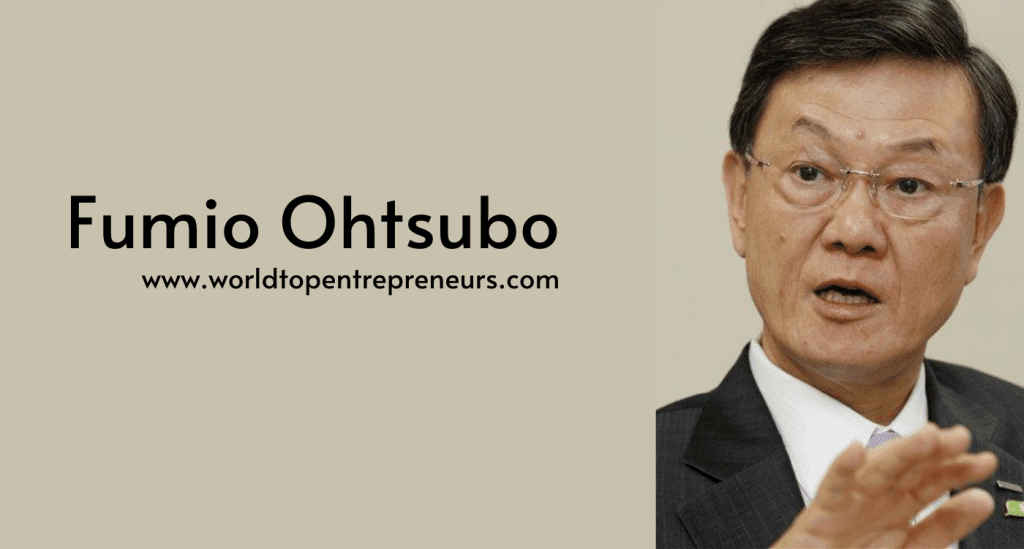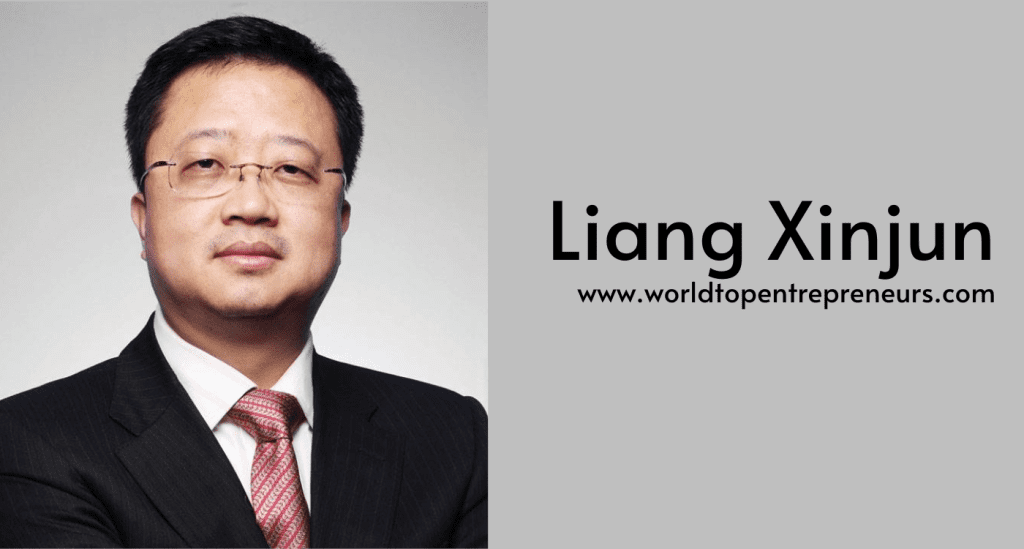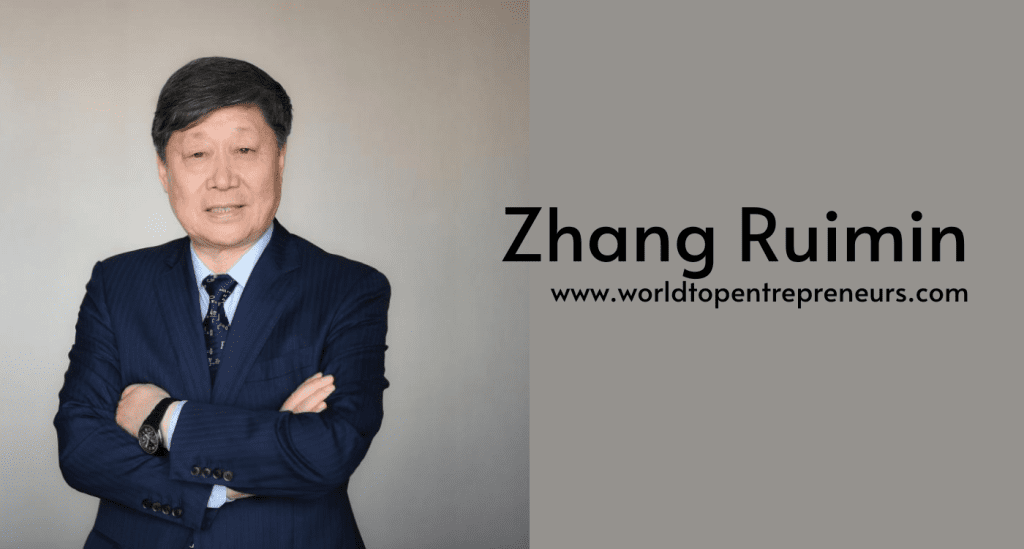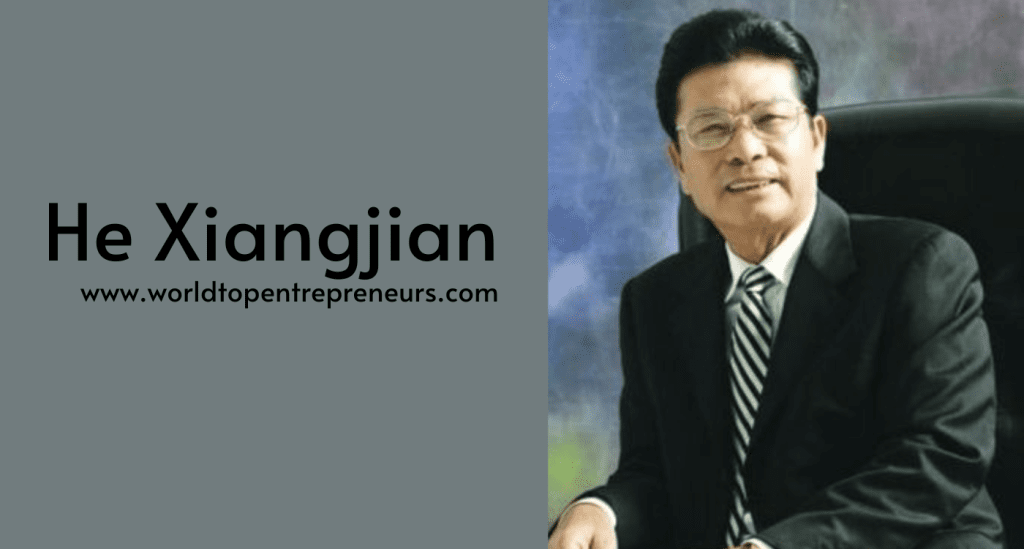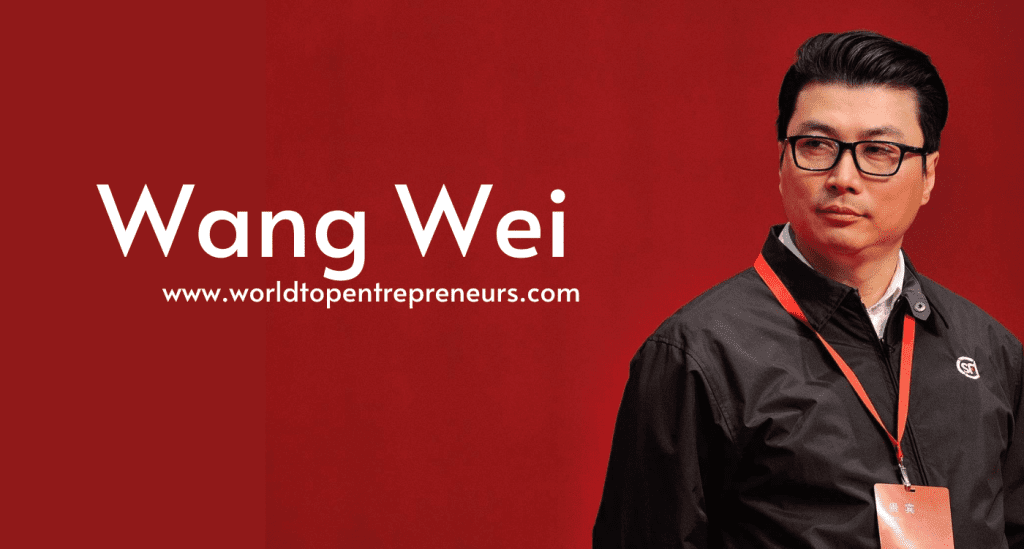In the dynamic world of electronics, where innovation and technological advancement define success, Fumio Ohtsubo emerges as a pivotal figure. As the founder of Panasonic Corporation, Ohtsubo’s journey from humble beginnings to creating a global electronics powerhouse is a testament to vision, perseverance, and relentless pursuit of excellence. This article delves into Ohtsubo’s life, his pioneering work with Panasonic, and his enduring impact on the electronics industry.
Early Life and Education
Fumio Ohtsubo was born on November 27, 1935, in Osaka, Japan. Growing up in post-war Japan, Ohtsubo experienced firsthand the rapid transformation of his country, which was recovering from the devastation of World War II and rapidly advancing in technology and industry. This period of profound change and growth would influence his future ambitions.
Ohtsubo’s early education was marked by a keen interest in electronics and engineering. He attended Osaka University, where he studied electrical engineering. The rigorous academic environment at Osaka University provided Ohtsubo with a solid foundation in the principles of electronics and engineering. His time at the university was not just about academic learning but also about fostering a deep passion for technology and innovation.
The Founding of Panasonic Corporation
The story of Panasonic Corporation’s inception is closely tied to Ohtsubo’s entrepreneurial spirit. In 1955, he founded the company under the name “Matsushita Electric Industrial Co., Ltd.” The company was initially focused on producing electrical appliances and components. Ohtsubo’s vision was to create a company that could deliver high-quality and innovative products that would enhance the lives of consumers.
In its early years, Panasonic faced the challenges typical of a new enterprise—establishing a market presence, building a reputation, and securing a customer base. However, Ohtsubo’s commitment to quality and innovation helped the company navigate these challenges. The company’s focus on producing reliable and affordable electronics resonated with consumers, setting the stage for future growth.
Pioneering Innovations
Under Fumio Ohtsubo’s leadership, Panasonic Corporation became synonymous with innovation in the electronics industry. Ohtsubo’s approach to business was centered around constant innovation and improvement, which led to several groundbreaking products and technologies.
1. The Development of the First National Electric Fan
One of Panasonic’s early successes was the development of the National Electric Fan, a product that became highly popular in Japan. This fan, known for its durability and efficiency, set new standards in home appliances and established Panasonic as a leading manufacturer in the industry. Ohtsubo’s emphasis on creating high-quality products with practical benefits was evident in the success of this fan.
2. Advancements in Consumer Electronics
The 1960s and 1970s marked a period of significant technological advancements for Panasonic. Under Ohtsubo’s guidance, the company developed a range of consumer electronics, including televisions, radios, and audio equipment. Panasonic’s commitment to innovation was evident in its development of the first Japanese-made color television, which showcased the company’s technological prowess and set it apart from competitors.
The introduction of new technologies and product lines helped Panasonic build a strong market presence and establish itself as a leading player in the global electronics industry. Ohtsubo’s strategic vision and focus on technological advancement played a crucial role in the company’s success.
3. Expanding into New Markets
Recognizing the potential of international markets, Ohtsubo guided Panasonic’s expansion beyond Japan. The 1980s and 1990s saw the company establish a significant presence in North America, Europe, and other regions. This global expansion was driven by Ohtsubo’s belief in the importance of reaching new markets and leveraging global opportunities.
Panasonic’s international success was facilitated by the establishment of local manufacturing facilities and distribution networks. By adapting its products and strategies to meet the needs of different regions, Panasonic was able to build a strong global brand and connect with consumers worldwide.
Embracing Technological Advancements
Fumio Ohtsubo’s tenure at Panasonic was marked by a relentless pursuit of technological advancements. His leadership philosophy emphasized the importance of staying ahead of industry trends and embracing new technologies.
1. The Rise of Digital Electronics
As the electronics industry transitioned from analog to digital technologies, Panasonic was at the forefront of this shift. Ohtsubo recognized the potential of digital electronics and led the company’s efforts to develop new products and technologies that capitalized on this trend.
Panasonic’s investment in digital technology led to the development of a range of innovative products, including digital cameras, camcorders, and home entertainment systems. These advancements not only enhanced the company’s product offerings but also solidified its position as a leader in the electronics industry.
2. Sustainable Technologies
In addition to embracing digital advancements, Ohtsubo was also committed to sustainability and environmental responsibility. Under his leadership, Panasonic invested in research and development of energy-efficient and eco-friendly technologies.
One notable example of this commitment was the development of Panasonic’s eco-conscious products and technologies. The company focused on creating energy-efficient appliances, solar power systems, and other environmentally friendly solutions. This emphasis on sustainability reflected Ohtsubo’s belief in the importance of addressing global environmental challenges.
Challenges and Resilience
Throughout his career, Fumio Ohtsubo faced various challenges that tested his leadership and resilience. The electronics industry is highly competitive and subject to rapid technological changes, requiring companies to adapt quickly and innovate continuously.
1. Economic Recessions
Economic recessions can impact consumer spending and demand for electronics. During periods of economic downturn, companies may face reduced sales and profitability. Ohtsubo’s ability to navigate these challenges and make strategic decisions was crucial in maintaining Panasonic’s stability and growth.
Ohtsubo’s approach to managing economic challenges involved diversifying the company’s product portfolio and exploring new markets. By expanding into emerging markets and investing in new technologies, Panasonic was able to mitigate the impact of economic fluctuations and sustain its growth.
2. Technological Disruptions
The rapid pace of technological advancements presents both opportunities and challenges for electronics companies. Staying ahead of technological disruptions requires continuous innovation and adaptation. Ohtsubo’s leadership was characterized by a proactive approach to technology, with a focus on investing in research and development to drive innovation.
Panasonic’s ability to embrace new technologies and integrate them into its product offerings allowed the company to remain competitive and relevant in a rapidly evolving industry. Ohtsubo’s emphasis on innovation and technological leadership played a crucial role in Panasonic’s success.
Legacy and Impact
Fumio Ohtsubo’s legacy is deeply intertwined with the success and influence of Panasonic Corporation. His visionary leadership and commitment to innovation have shaped Panasonic into a global leader in electronics, known for its high-quality products and technological advancements.
Panasonic’s impact extends beyond its financial performance and market presence. The company’s contributions to technological innovation, consumer electronics, and sustainable technologies have influenced industry practices and set a high standard for excellence. Ohtsubo’s emphasis on quality, innovation, and global expansion has inspired other companies to adopt similar approaches and adapt to changing market conditions.
Furthermore, Ohtsubo’s leadership has left a lasting impression on Panasonic’s organizational culture. The company’s focus on technological advancement, sustainability, and global outreach reflects Ohtsubo’s values and vision. His approach to leadership has fostered a culture of excellence within Panasonic, ensuring that the company remains a leader in the electronics industry.
Reflections on Leadership and Vision
Fumio Ohtsubo’s journey as the founder of Panasonic Corporation exemplifies the qualities of a visionary entrepreneur. His ability to blend technical expertise with strategic thinking, navigate complex challenges, and drive global expansion demonstrates the essence of effective leadership in the electronics industry.
Ohtsubo’s approach to business is characterized by a commitment to innovation, quality, and sustainability. His contributions to Panasonic highlight the importance of staying ahead of industry trends, embracing new technologies, and maintaining a focus on delivering value to consumers.
Moreover, Ohtsubo’s emphasis on global expansion and adaptability underscores the significance of reaching new markets and exploring new opportunities. His leadership serves as an inspiring example for aspiring entrepreneurs and industry professionals, illustrating the transformative power of visionary thinking and strategic decision-making.
Conclusion
Fumio Ohtsubo’s journey from a passionate engineer to the founder of Panasonic Corporation is a remarkable story of innovation, dedication, and visionary leadership. His contributions to the electronics industry have left a lasting impact, shaping Panasonic into a global leader known for its technological advancements and high-quality products.
Through his leadership, Panasonic Corporation has become a prominent player in the electronics industry, recognized for its commitment to excellence and its ability to address complex technological challenges. Fumio Ohtsubo’s legacy serves as an inspiring example of the transformative power of visionary thinking and the importance of continuously seeking new opportunities in the ever-evolving world of electronics.

